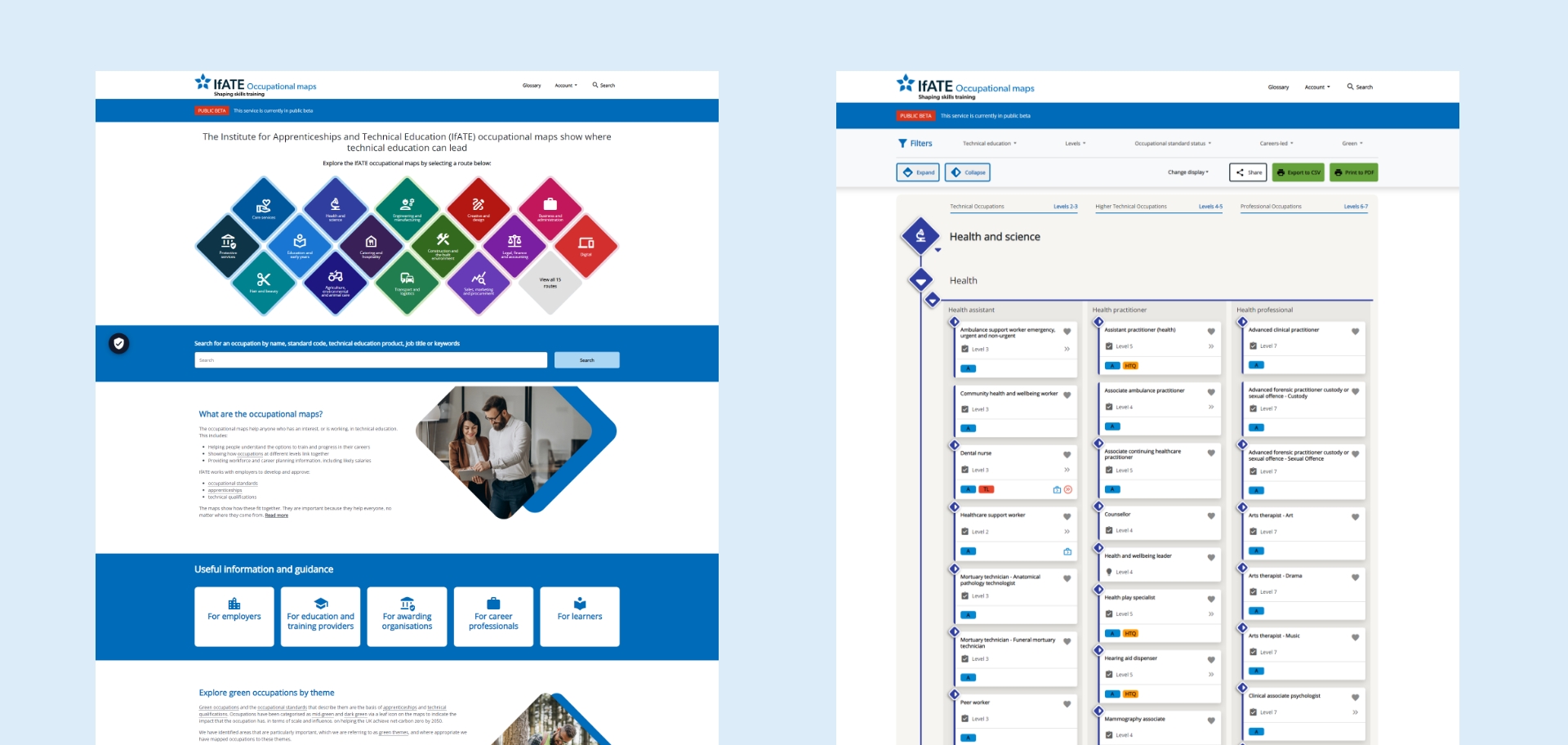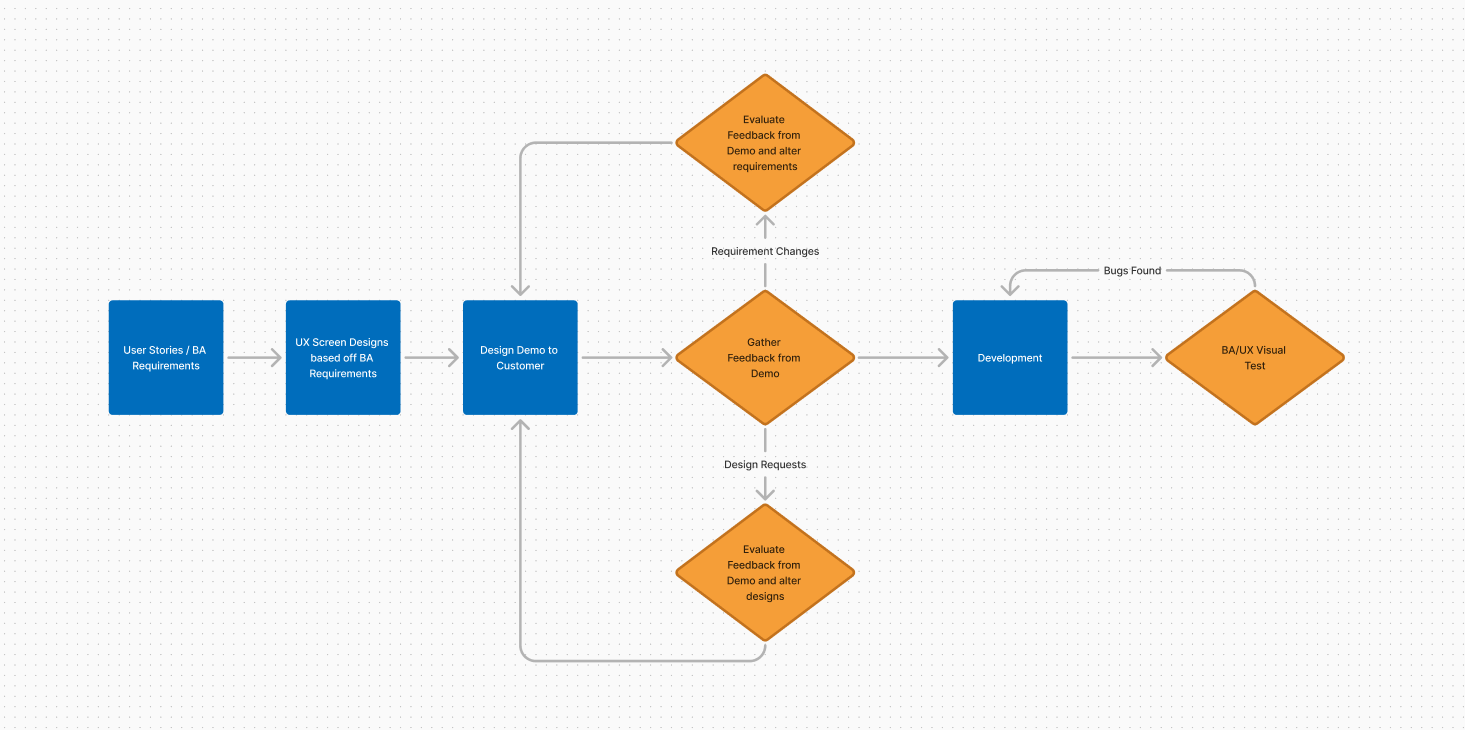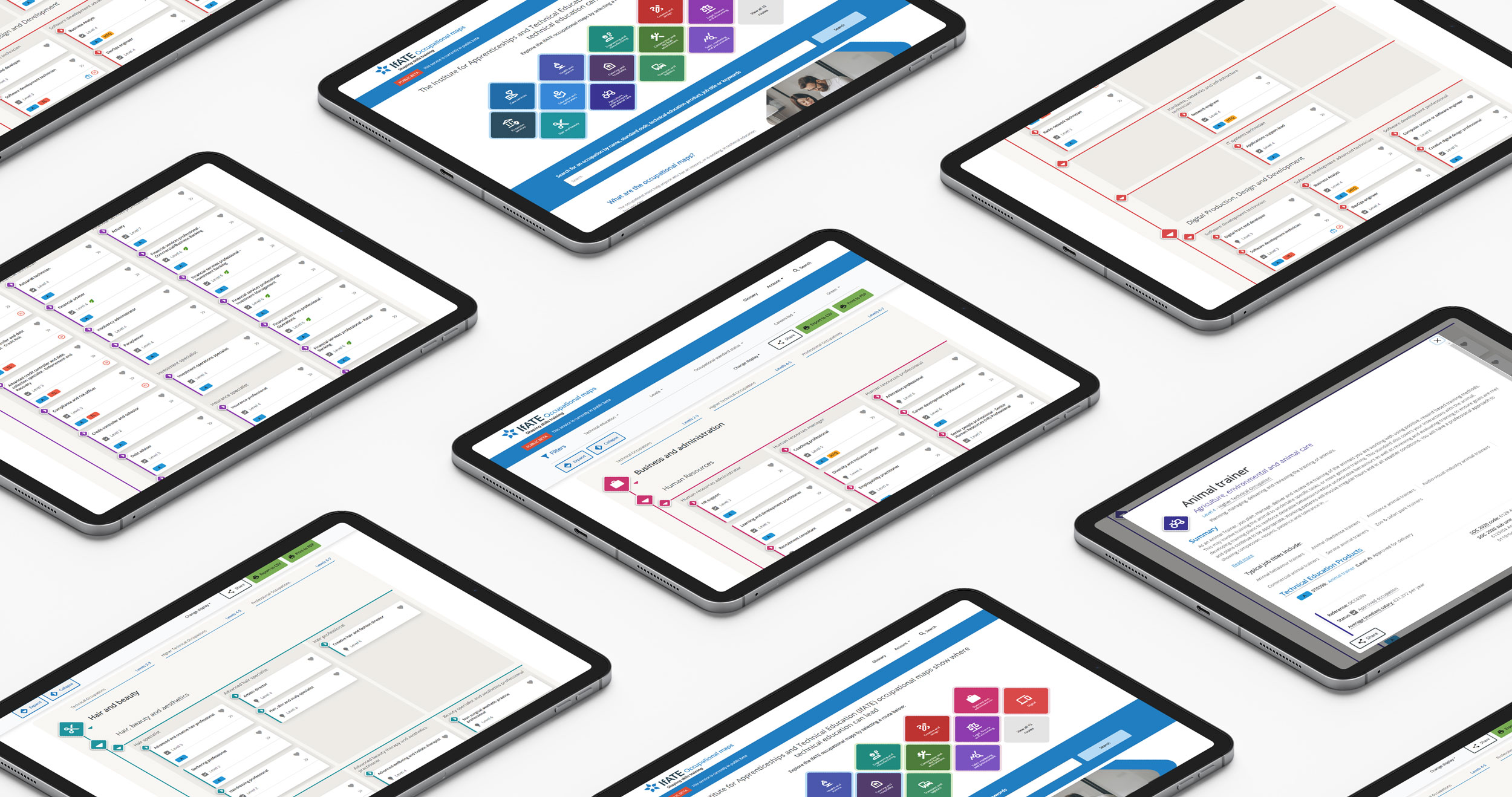Project Background
The Institute for Apprenticeships and Technical Education (IfATE) works with employers to develop, approve, and review apprenticeships and technical qualifications in England. IfATE plays a vital role in setting the occupational standards for post-16 technical and higher education training, as outlined in the 2021 Skills for Jobs whitepaper.



The solution
Enhanced maps to better reflect the landscape
IfATE selected PDMS as their partner to collaborate with their internal team on the development of the enhanced Occupational Maps. The aim was to integrate IfATE’s extensive user research and technical education data into a comprehensive occupational library suitable for the post-16 market. Using an agile methodology, the project was divided into alpha and beta phases, with fortnightly sprints involving all team members.
The occupations were categorised into 15 routes, further divided into pathways and clusters. Each one provided detailed information about each occupation, including knowledge, skills, behaviours, and salary data, as well as potential progression opportunities.
The challenge
Evolving technical education data
Central to the delivery of these reforms was the planning, development and communication of technical education through new Occupational Maps. These maps illustrate the relationship between education, qualifications, apprenticeships, and occupations, serving as a navigational tool for students and educators to understand the careers and training landscape in England.
Initially, the maps were developed for apprenticeship standards. With the growth in the number of apprenticeships standards and IfATE’s wider strategy to become more occupation-centric, the occupational maps needed to be expanded and improved to reflect other technical education programmes.
The project
Alpha and beta phases
In the Alpha phase, the project focused on addressing the greatest risks first, using an iterative process with user feedback to develop a usable interactive prototype of 15 Occupational Maps and progression maps. Stakeholders explored these prototypes to gather meaningful feedback, and tools were created for editing the maps and planning future business processes and data flow. A proof-of-concept Occupational Library was developed in Umbraco CMS, integrating a search feature and producing an API specification to facilitate stakeholder feedback before actual API development.
In the Beta phase, a data service was created to consume IfATE's data, and a public API was developed using an 'API first approach'. This public API was then integrated into an Angular App within Umbraco CMS, delivering a feature-rich client-side interface with user-driven customisations and filtering. This allowed IfATE to have control over the supporting content.

The results
The result is a robust, modern framework that supports IfATE’s work as the technical education system continues to evolve. IfATE now has a site which presents its Occupational Map data in an occupation-centric and interactive way. The data is accessible in multiple formats, catering to a variety of user types and purposes.
The new Occupational Maps assist IfATE’s different stakeholders in understanding, communicating and raising awareness of the technical education landscape. Stakeholders also have tools to extract and utilise IfATE’s valuable occupational data for various applications, such as curriculum planning within colleges or succession planning and recruitment within businesses.
The Occupational Maps were officially launched at the House of Commons in June 2023, marking the completion of a successful project which will help inform the career paths and educational choices of people across the UK.

User feedback
The Occupational Maps have received some great user feedback via social media:
-
“An invaluable tool for both educators and students alike, providing clarity and direction in navigating the interconnected world of education and careers. Great work IfATE!”
-
“An excellent initiative to attract future talent”
-
“These are an easy way to see what you can do and what paths you can take to get to where you (currently) want to.”
-
“These are a great, simple visual and I love the inclusion of median salaries and the progression map”
-
“Looks great, easier to understand and simpler to use.”
-
“Love the creativity, salaries, and routes. These will really help with those wanted to see the options and careers advisors. Very informative well done!”
-
“So much more intuitive”
Client testimonial
Check out what our customers think
It has been an incredible privilege to work with very talented professionals on delivering occupational maps service to public beta. As Product Owner and contract manager, I have been consistently impressed with the creativity and tangible outputs. I wanted to say a personal thank you to the Occupational Maps team. Though employed by PDMS, they have been valued members of my whole team. We delivered public beta on time and on budget. Thank you.

Hannah Morgans Product Owner at IfATE
More Case Studies

